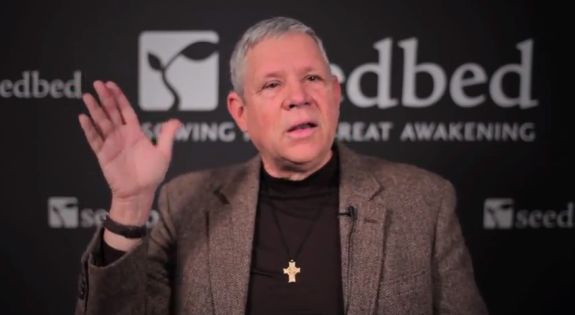
Curious about Wesleyan theology? Need a refresher-course on why Wesleyans believe what they believe? You MUST watch this short (not even 7-minutes!) video from Dr. Ben Witherington III (Amos Professor of New Testament for Doctoral Studies at Asbury Theological Seminary and on the doctoral faculty at St. Andrews University in Scotland) where he discusses why he considers the Wesleyan understanding of the gospel to be the most faithful to Scripture.
A couple quotes from the video:
“In the Wesleyan presentation of the gospel, there’s a balance here . . . There’s a balance between faith and good works. There’s a balance between personal spiritual holiness and social holiness. There’s a balance between justification and sanctification. There’s a balance between God’s role in our life and what God enables us to do on behalf of the Kingdom and for the sake of His church.”
– Dr. Witherington III
“The truth of the matter is that the Wesleyan gospel is the one that is most optimistic about the sovereignty and power and grace of God – and that’s the chief reason I’m a Wesleyan.”
– Dr. Witherington III
(if you can’t see the embedded video, please click here for a direct link)










Witherington’s explanation is outstanding. I echo every bit of it: Wesleyans have the clearest balance between grace through faith and faith demonstrated by works. However, I fear that his portrayal of Calvinists as rejecting the possibility of a life transformed by grace, particularly expressed toward the end of the video, is rather unfortunate. While there are certainly persons operating under the flag of Calvinism who believe in this manner, in reality, Calvin believed that the elect would indeed demonstrate their election through godly works and behavior. And in fact, he expected more out of those he deemed elect than we Wesleyans probably ever would.
Good article and insights, but Jesus and his true disciples were constantly criticized for being “unbalanced.” I also read recently that.. ‘faith is the unbalancing force in our lives that is the fruit of God’s disturbing presence.’ And, in Mathew, Jesus warns what happens when you decide to be his disciple. His description of discipleship is virtually a manual of unbalance.